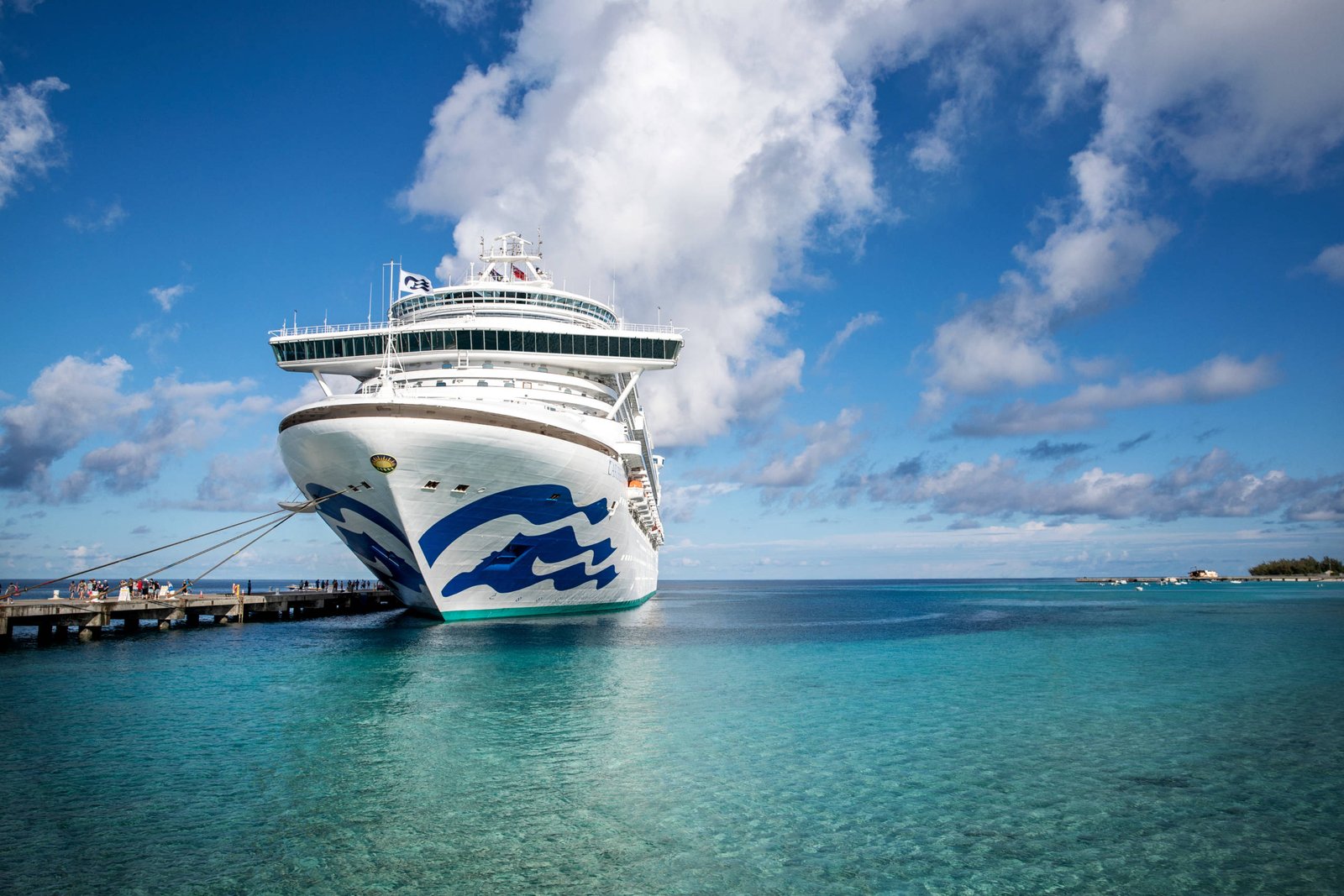One of the great allures of cruising is that a lot is included in the fare. Those $499-a-week rates that you see advertised include not just a room on a ship but also meals and entertainment. The ship also acts as your transportation — it gets you from place to place at no extra cost.
Still, for the most part, cruises aren’t all-inclusive. On many ships, there are a lot of little things — and some big things — for which you’ll pay extra.
Some of the things that come with an additional charge are what you would expect. You’ll pay extra for treatments in shipboard spas, for instance, or for guided shore excursions in most cases.
But on many ships, there also are a growing number of extra fees that might take you by surprise — particularly if you haven’t been on a ship in a while.
For instance, some lines now charge extra for room service — something that always used to be free. On some ships, certain menu items in the “free” main dining room now come with an extra charge.
Here at TPG, we call this the nickel-and-diming-ization of the cruise world, and we’re not happy about it. You shouldn’t be happy about it, either.
You also shouldn’t assume there’s nothing you can do about it. In the segments below, we look at nearly a dozen different fees that you may encounter when cruising on big-ship cruise lines — and offer advice on what to do about them.
Taxes, fees and port charges
At many lines, the extra-fee shocks start even before you get on a ship.
The first one you’re likely to encounter is a levy for “taxes, fees and port charges.” It’ll appear on your final invoice during the booking process, and it can often run into hundreds of dollars per person.
It can make a sailing significantly more expensive than it initially appears.
Be sure to factor in the cost of taxes, fees and port charges when pricing a trip on a cruise ship such as the 3,690-passenger Carnival Magic. ANDY NEWMAN/CARNIVAL CRUISE LINE
As of the date of this posting, for instance, Carnival Cruise Line was advertising four-night cruises to Mexico out of Los Angeles starting at $179 per person.
However, that doesn’t include taxes, fees and port charges of $118.65. So the true starting price of the cruise is 66% more than what you see in big print on the line’s website.
The taxes, fees and port charges line on invoices covers all the fees that countries, states, towns and ports charge ships and their occupants — fees that the line passes on to you.
You can’t get around these fees. However, you can go into the booking process wide-eyed by searching the fine print on booking sites for such fees before you commit to a particular sailing.
Internet access fees
Free internet has become standard at a lot of hotel chains, so it might seem logical that cruise lines would offer free internet, too. After all, cruise ships are just hotels that happen to float. In general, though, only the highest-end lines in the cruise world (and many river lines) offer free internet.
At many big brands, such as Royal Caribbean, Carnival and Princess Cruises, you’ll sometimes pay exorbitant amounts for internet access. The fastest service on Carnival vessels, for instance, was recently priced at $18.70 per person, per day. Compare that to what you pay for the internet at home.
One way to avoid the charges is to wait until you’re in a port to check your emails, read the news online and do whatever else you do on the internet. You can often find free internet in the cruise terminal where your ship docks or at a nearby cafe or eatery.
Another option: Some lines offer less expensive internet plans that have scaled-back access. Carnival, for instance, has a less pricey “social” plan that brings access to key social sites (Facebook, Twitter, Instagram, etc.), as well as messaging services such as WhatsApp — but not much else — for $12.75 a day. It may be all you need.
Note that these internet charges seem to do nothing but rise in cost. At $12.75 Carnival’s social plan costs 37% more than it did two years ago.
Room service ‘convenience’ fees
Complimentary room service used to be a standard on cruise ships, but a growing number of lines now charge extra for it.
The world’s biggest cruise line by passenger capacity, Royal Caribbean, for instance, now levies a $7.95 per order “service charge” for room service even if all you order is a single side of hash browns.
It also — and this could really drive you nuts — adds an 18% “gratuity fee” on top of the service charge for good measure. For the record, we find that fee-on-top-of-a-fee structure absurd. Just say you’re going to charge us $9.38.
Other lines that have started charging for room service include Norwegian Cruise Line, which now has a $9.95 “convenience charge” for room service. Celebrity Cruises also added a $9.95 room service fee this year for all items except Continental breakfast. Like Royal Caribbean, Celebrity adds an 18% gratuity fee on top of that charge — another service fee on top of a service fee situation that we find innane.
The way around these fees is simple: Don’t order room service.
On many ships, there is no-extra-charge food available nearly around the clock from multiple outlets just steps away from your room, from casual buffet eateries to grab-and-go pizza stands. All it takes is a short walk from your cabin to get it.
Drinks charges
While meals are generally included on cruise ships (at least in some onboard eateries), you’ll pay extra for most drinks — and not just alcoholic drinks.
On many ships, soda and bottled water come with an extra charge (though, oddly, coffee, iced tea, lemonade and hot chocolate usually are available for free). A soda can cost anywhere from $2 to $4, depending on the line.
The exception is on luxury lines, where drinks of all types are generally included in the fare. Many river lines will include many drinks, including beer and wine, with lunches and dinners.
If you’re a big drinker, consider a drinks package. It can save you money if you normally would order a large number of drinks every day. That said, drinks package prices have soared of late, with one of the biggest lines now charging $138 a day for its top-tier drinks package.
Corkage fees
Speaking of drinks, many cruise lines will allow you to bring your own wine or Champagne on board, usually in limited quantities. If you do so, be careful where you drink it. Depending on where you pop open your own bottle, you might be slapped with a corkage fee of $15 or more.
Lines such as Royal Caribbean, Carnival and Princess levy corkage fees for passengers opening their own bottles in restaurants, bars, lounges and other onboard venues.
The only way to avoid this fee is to open your wine or Champagne in your room and then either drink it there or take it around the ship in a nondescript glass.
Not that this always works: Norwegian charges a $15 corkage fee even if you want to drink your own wine in your own room. It will levy the charge the moment you walk on board with a bottle.
Fees for lounging in adults-only areas
Several of the biggest cruise lines like to boast about the adults-only sunning areas on their ships where you can escape from the little ones. However, what they sometimes leave out is that they’ll often charge you for the privilege of being in a kids-free zone.
Princess, for instance, charges $20 per half-day per person to use its adults-only Sanctuary sun deck on its ships. On some ships, you’ll pay even more. Norwegian charges $79 per person per day to use its adults-only Vibe Beach Club. If you’re interested in this sort of thing, be sure to check the fees before you book.
Specialty dining charges
While you’ll find plenty of free food on a big-ship cruise, there’s also often the option to pay extra for a special meal.
Most ships have at least one extra-charge specialty restaurant. On some ships, there are multiple options, ranging from steakhouse-style venues to French or Italian establishments. Typically, you’ll pay a cover charge of $25 to $35 per person to dine in such a venue. Then, once you’re in, food and drink usually is free.
Fine dining usually comes at a price on a cruise ship. Pictured here is the Tuscan Grille, a specialty restaurant on Celebrity Cruises’ Celebrity Solstice. CELEBRITY CRUISES
If you’re considering a meal in a specialty restaurant, be sure to factor in the cost before you book. Also, check to see if there are any discounts available for pre-booking or dining on certain nights.
Spa fees
A spa treatment on a cruise ship is a luxury experience, and you’ll pay luxury prices for it.
On most big-ship lines, spa treatments can cost anywhere from a few dozen dollars for a basic facial to several hundred dollars for a full-day package with multiple treatments. Massages, meanwhile, can run well into the hundreds of dollars.
Be sure to check the spa menu before you book a treatment so you know what you’re getting into. Also, check to see if there are any discounts available for booking treatments on port days or during specified hours.
Gratuities
Most big-ship lines now charge automatic gratuities of $10 to $15 per person, per day, for standard cabins. If you’re in a suite, expect to pay a bit more.
Some lines, such as Carnival and Norwegian, also charge automatic gratuities of 18% for bar drinks and spa treatments.
Note that you can ask to adjust the gratuity amount up or down at the end of your cruise if you feel it doesn’t reflect the level of service you received.
Photography fees
Cruise lines love to take your picture. It’s a big revenue generator for them.
On most ships, you’ll find photographers stationed throughout the vessel, ready to snap your picture whenever you leave or re-enter the ship, go to dinner or go to a show. They’ll also be on hand during formal nights to take your picture in your fancy clothes.
If you’re interested in buying any of the photos, be prepared to pay a premium. A single 8×10-inch print can cost $20 or more.
The good news is that you’re under no obligation to buy any of the pictures. You can simply say no thank you and continue on your way.
Casino fees
If you’re a gambler, be prepared to pay extra for the privilege of playing in the ship’s casino.
On most big-ship lines, you’ll need to set up a separate account

